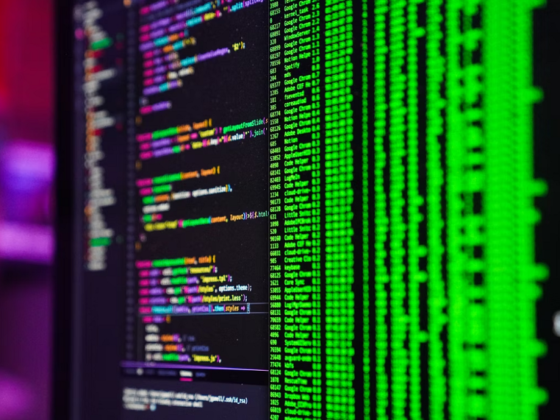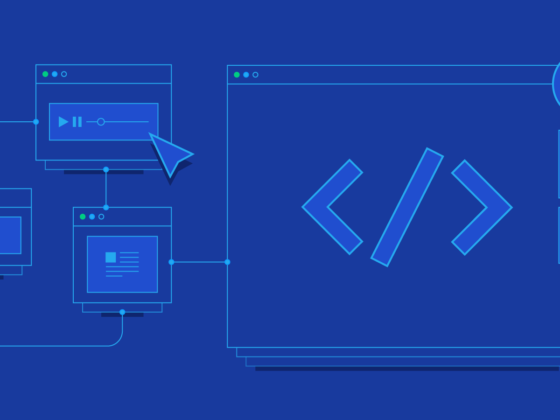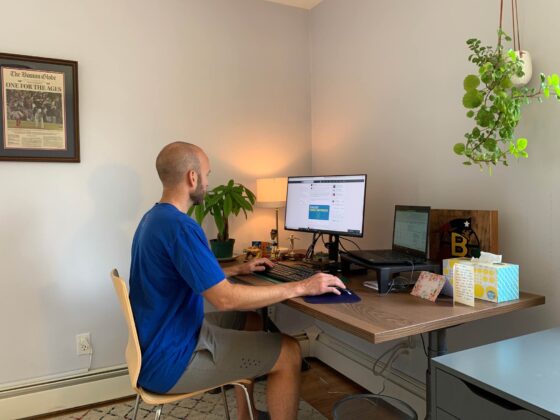Programming is now a marketable skill, and C is a well-known and widely-used programming language to master. As a coding beginner, you must sort through Python, C++, and JavaScript to decide where to start.
C, Python, and Java are CS reference languages worldwide, while C is a middle-level language since it includes assembly. Before you proceed, please take a second to find out if it’s the right language for you to learn:
What coding language is best for you?
We crafted this test to help learners find the right programming language. Just pick your own goals and preferences.
Best part? The test will take under a minute only!
Programming is easy. We’ll show you what to do before you learn C. You’ll be accumulating C skills quickly on your road to a prosperous career.
What is C, and How does it work?
It was American computer scientist Dennis Ritchie who created and implemented the C programming language and the UNIX operating system. Despite its simplicity, C has no links to any specific hardware, making it easier to develop applications that work on virtually all machines without requiring many (or any) adjustments.
Specialists often refer to the C language as a middle-level computer language because it combines features of high-level languages with the functionalism of assembly. C allows a programmer to manipulate bits, bytes, and addresses, providing them more control over how the program behaves and more direct access to the underlying hardware mechanisms.
While C satisfies the basic needs for programming, more and more aspiring coders want to focus on C++, a so-called “improved C” create to enhance C and add object-oriented elements to it.
C vs. C++
C and C++ are two of the most widely used programming languages today. C is responsible for much more technology than people realize: Its syntax and concepts have stood the test of time, and we can see them in other famous programming languages today, including recent ones like Go.
C++ lives in your favorite programs, including the web browser you use to read this article. Knowing C is a solid start, but if you plan to work with software development — learning C++ and its principles would be a must.
C and C++ are the programming languages to use if you want to write software that takes advantage of a computer’s performance and capabilities or if you want a programming language that lets you interact directly with a computer’s hardware.
Getting Started with C
See the steps below to learn C programming.
1) Find the Right Compiler
You’ll need a competent C compiler, which is critical for programming; Language-optimized compliers turn code into machine-level instructions that the target device can interpret.
Online compilers are great for beginners, but they have restricted features. Linux users can install GNU GCC or a comparable compiler; PC users can install Code::Blocks.
2) Learn C fundamentals
C is an older, more powerful programming language than C++. It was designed for Unix but ported to nearly all operating systems. C functions store and manipulate data using variables, conditional statements, and loops, so it’s a must to learn all these fundamentals before you go to polish your programming skills further.
3) “Hello, World!”
It’s time to write a simple program now. Let’s start with an oldy-moldy “Hello, world!” and have you compose a text message. The application is simple, but the fundamentals are sound. You’ll get a feel for C’s syntax and structure as you work on this application.
C has a small memory footprint, and that’s why it needs libraries to perform tasks. You’ll start your program with stdio.h, which defines the printf function in this example. The command main is used to begin code execution (). The main body comprises all the code enclosed in curly brackets ({}).
So, here’s the program:
#include <stdio.h>
int main()
{
printf("Hello, World!\n");
return 0;
}
Tip: Comment code. Uncompiled code comments explain what’s happening, and this helps you and other developers understand your code.
So, here it goes, your first C code written! Congrats — You’ve started your programming journey!
What is the best way to learn C?
Learning C will help you grasp how software and hardware interact, even if you want to design online applications or fancy web front-end components for the rest of your life.
Although everyone’s learning style is different, some “learning by doing” is generally a good idea. You can start by running simple C programs directly from your web browser. There are also a plethora of video courses, online tutorials, books, and groups available to assist you in learning in the way that works best for you.
Another option could be to complete an immersive program on C, C++, or any other programming language in a coding bootcamp. Just ensure you’ve considered all the details before entering and chosen the school that suits your goals and needs best.
Fill out this form to get matched
Want to learn Xcode from real pros? Here is the deal. We analyze hundreds of coding schools every day and we know for sure which one constantly delivers the proven results.
The advantages of knowing C:
C is for embedded devices and most Linux-based Internet servers, powering the Linux kernel and all Android smartphones. Its code operates much of the world, revealing the machine’s complexity and capabilities. Doesn’t it sound like magic to operate by it?
Operating systems, online browsers, office software, video games, and hardware drivers, among other things, still employ the C programming language. It complies with native machine code, which is critical for stellar performance.
What next?
- Find a C book. This article covers the basics of C programming but not everything. An excellent reference book can answer problems and prevent headaches.
- Programming and its languages have many online and offline communities. Get involved. You’ll learn much if you share code and ideas with other C programmers.
- Take lessons. Taking a couple of computer science classes can improve your learning. Nothing beats language-savvy, hands-on help. Some universities let you audit their computer science programs without enrolling.
- Learn C++. Once you’ve mastered C, try C++. Modern C gives users additional versatility. Knowing C++ may help you construct powerful programs for almost any operating system.
Conclusion
That’s all, folks. You might turn pale and cold at programming in C, but once you try it — it’ll be easier than riding a bike. C is a great way to start, introduce yourself to more complex languages, and it can help you get into app development. Learning C will make you a better employee and a better job candidate.










